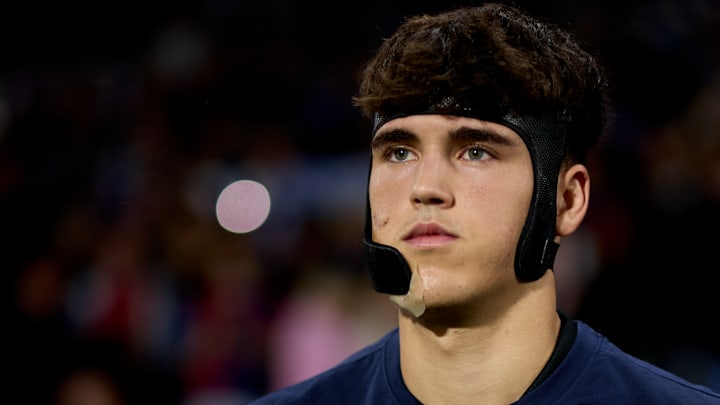Pau Cubarsí, the young centre-back from Barcelona has taken the place of Aston Villa's Pau Torres in Spain's national team for the upcoming games of the Nations League due to Torres failing to recover on time from his muscle problem. The summoning of Cubarsí is interesting, especially as in the last stage of preparation, he dealt with a face injury, while at the same time, complaining of illness-like symptoms. It would be more intriguing in what condition the team and the players reach the scene, especially thinking about the strategy of Head Coach Luis de la Fuente in key games against Denmark and Switzerland.
Follow Playing for 90 on X (Twitter).
Spain's Defensive Headache
Losing Pau Torres is a big blow to the Spanish backline, considering that coach De la Fuente had also already lost another key defender, Le Normand. With such absences, Spain goes into the crucial stage in the Nations League with limited defensive options, relying only on Ayméric Laporte and Dani Vivian as experienced center-backs. The call-up of Cubarsí was forced for the sake of trying to bring some kind of balance into this team's defense.
The Barcelona player, 17 years old, is one of the rising stars at the club and is regarded as a huge talent, but at this stage, his inclusion does come with some nuance. He is still young, talented, and with potential, yet calling him up when he is still recovering from the recent facial injury and a brief illness could suggest that De la Fuente does not take risks-a necessary move, given the circumstances.
De la Fuente's Decision: A Gamble that Had to be Done?
De la Fuente most probably feels himself in a situation where boldness is inevitable. Calling up a young defender who's still recovering from a facial injury and recent illness does raise questions about the available alternatives and Spain's depth of defense. But with Cubarsí, De la Fuente could simply be making a calculated gamble: a young player with the potential to adapt quickly and make a positive contribution, even in challenging conditions.
Barcelona reports that Cubarsí recently felt dizzy and nauseous but was recovering, while the RFEF already feels better. Even so, the rush with which he has called him up reflects how critical the situation is and also shows something else: this is a signal of confidence on the part of De la Fuente in this young talent. A decision taken in this manner would be an indication that the coach trusts Cubarsí's powers to respond to decisive moments, despite the adverse conditions.
Calculated risks and the burden of trust in Young Cubarsí
Calling up a player who was not that long ago coping with physical issues and still recovering from a facial injury definitely carries risk. In contrast, though, this borders on a vote of confidence in Cubarsí's potential to grow under pressure. Moments like these present trial-by-fire situations for the emergence of young talent, and perhaps De la Fuente wants to see how he responds to such sudden responsibility.
For the Spanish team, though, trust in this young Barcelona defender goes beyond these physical attributes. At Ciudad del Fútbol in Las Rozas, Cubarsí will join the rest of the team, doing an intensive session before the trip to Denmark. That the young player traveled with them despite complications during his recovery gives evidence of the trust that exists concerning the mental toughness and adaptability that he possesses. A call-up like this for a player of such tender years is a strong signal that he has a great deal of potential and an open door to further opportunities with the senior national team.
